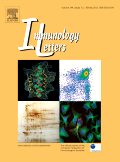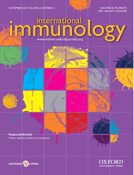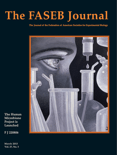
INFLAMMATION RESEARCH
Scope & Guideline
Illuminating the pathways of inflammation research.
Introduction
Aims and Scopes
- Molecular Mechanisms of Inflammation:
Research focusing on the molecular pathways and cellular mechanisms involved in inflammation, including studies on inflammasomes, cytokines, and signaling pathways. - Inflammation in Disease Models:
Investigations into the role of inflammation in various disease models, such as autoimmune diseases, cancer, cardiovascular diseases, and infectious diseases. - Therapeutic Approaches to Modulate Inflammation:
Exploration of novel therapeutic strategies to modulate inflammatory responses, including pharmacological agents, biological therapies, and lifestyle interventions. - Role of Immune Cells in Inflammation:
Studies examining the functions of various immune cell types, such as macrophages, T cells, and neutrophils, in the context of inflammation and immune regulation. - Impact of Microbiota on Inflammation:
Research investigating the interactions between the gut microbiome and the immune system, and how these relationships influence inflammatory processes.
Trending and Emerging
- Inflammation and Metabolism:
A growing trend is the exploration of the relationship between inflammation and metabolic processes, including studies on how metabolic dysregulation contributes to inflammatory diseases. - Microbiome-Immune Interactions:
Research focusing on the interplay between the microbiome and the immune system is on the rise, emphasizing how gut health influences systemic inflammation and disease outcomes. - Novel Therapeutics Targeting Inflammation:
There is an increasing focus on developing and testing new therapeutic agents that specifically target inflammatory pathways, with an emphasis on personalized medicine. - Role of Extracellular Vesicles in Inflammation:
Emerging studies are highlighting the role of extracellular vesicles in mediating inflammatory responses and their potential as biomarkers or therapeutic targets. - Precision Medicine Approaches:
The application of precision medicine principles in inflammation research is trending, with a focus on tailoring treatments based on individual patient profiles and inflammatory signatures.
Declining or Waning
- Traditional Role of Cytokines:
While cytokines have long been a focus of inflammation research, recent studies have shifted towards more complex interactions and signaling networks, leading to a decrease in standalone cytokine studies. - In Vivo Animal Models:
There has been a gradual reduction in studies solely relying on traditional in vivo models, as researchers seek more innovative and human-relevant models to study inflammation. - Basic Mechanistic Studies:
Basic mechanistic studies without translational implications are becoming less prominent, with a greater emphasis now placed on clinically relevant research and therapeutic applications. - Single Pathway Investigations:
Research that focuses exclusively on single pathways or mechanisms is declining, as the field moves towards understanding the interconnectedness of various inflammatory pathways.
Similar Journals

INFLAMMATION
Pioneering Insights into Inflammatory ProcessesINFLAMMATION is a prestigious journal dedicated to advancing our understanding of inflammatory processes in health and disease, published by Springer/Plenum Publishers. Established in 1975, it has transitioned through significant developments in the field, with converged publication years extending from 1975 to 2005 and again from 2007 to 2024. Notably, the journal holds a commendable impact factor within its categories, ranking in Q2 for both Immunology and Immunology and Allergy in 2023, and achieving high Scopus rankings, placing it in the 77th and 75th percentiles respectively. Designed to disseminate cutting-edge research, the journal invites original research articles, reviews, and clinical studies that explore various aspects of inflammation, making it a crucial resource for researchers, healthcare professionals, and students aiming to stay abreast of the latest advancements and insights in the field.

IMMUNOLOGY LETTERS
Unveiling the Complexities of the Immune SystemIMMUOLOGY LETTERS, published by Elsevier, is a distinguished journal in the field of immunology, focusing on the latest advancements and findings that significantly influence immunological research and clinical applications. Established in 1979, the journal has evolved to cater to a global readership, featuring high-quality peer-reviewed articles across a diverse spectrum of topics related to immunity and allergic responses. With an impressive Q2 category ranking in both Immunology and Allergy as of 2023, it holds a strong position within the scientific community, evidenced by its commendable Scopus rankings (Rank #71/233 in Medicine - Immunology and Allergy and Rank #85/236 in Immunology and Microbiology - Immunology). While primarily subscription-based, the journal aims to foster knowledge dissemination that encourages collaboration among researchers and practitioners alike, making significant contributions to the understanding of immune mechanisms. The journal is integral for educators, students, and professionals aiming to stay abreast of current trends and breakthroughs in the immune system's intricate functions.

Inflammation and Regeneration
Fostering collaboration for a healthier tomorrow through science.Inflammation and Regeneration is a prominent open-access journal published by BMC, focused on the discerning fields of immunology, cell biology, and regenerative medicine. Since its establishment in 2016, the journal has provided a platform for the dissemination of high-quality research, contributing significantly to the advancement of knowledge in inflammation processes and regenerative therapies. With a remarkable impact reflected in its Q1 quartile rankings in Cell Biology and Immunology for 2023, Inflammation and Regeneration stands out as a leading resource for researchers and practitioners. The journal's commitment to open access ensures that critical findings are readily available to a global audience, fostering collaboration and innovation in the scientific community. With a Scopus ranking that places it in the top 20% of its categories, Inflammation and Regeneration serves as an essential reference for those seeking to stay at the forefront of immunological research and its applications.

Immunological Medicine
Empowering Innovation in Immunological MedicineImmunological Medicine, published by Taylor & Francis Ltd, is an esteemed open-access journal that has made significant strides in the field of immunology since its establishment in 2018. With an E-ISSN of 2578-5826, the journal has quickly gained recognition for its contribution to advancing immunological research, evidenced by its impressive ranking in the Q2 quartile for both immunology and allergy. Positioned in the United Kingdom, it offers a platform for publishing high-quality original research, reviews, and case studies that delve into the complex interactions of the immune system and its implications for human health. The journal serves as a vital resource for researchers, professionals, and students engaged in the burgeoning fields of immunology, providing open access to a wide audience and fostering collaboration and innovation. With a current Scopus ranking of #81 out of 233 in Immunology and Allergy and #97 out of 236 in Immunology and Microbiology, the journal aims to enhance the visibility and impact of cutting-edge research by bridging the gap between academia and clinical practice.

Journal of Inflammation-London
Bridging Basic Science and Clinical Insights on InflammationJournal of Inflammation-London, published by BMC, is a premier open access journal dedicated to advancing the understanding of inflammation, a critical process underlying numerous diseases including autoimmune disorders, cancer, and cardiovascular conditions. With its inception in 2004, the journal has consistently delivered high-quality research that bridges basic science and clinical applications, maintaining a significant place in the academic community. It holds impressive rankings within the Q2 category for both Cell Biology and Clinical Biochemistry, reflecting its impactful contributions to these fields, where it ranks in the 73rd and 64th percentiles respectively. The journal is committed to open access principles, ensuring that all published articles are freely available to researchers, practitioners, and the global community, thereby fostering collaboration and innovation. Located in the United Kingdom, the journal continues to attract submissions from prominent researchers and institutions worldwide, solidifying its status as an essential resource for the latest developments in inflammation research.

INTERNATIONAL IMMUNOLOGY
Unveiling Innovations in Immunology for Global Impact.INTERNATIONAL IMMUNOLOGY, published by OXFORD UNIV PRESS, stands out as a premier journal in the field of immunology, providing a vital platform for disseminating groundbreaking research and innovative developments within the discipline. With an impressive Q1 ranking in Immunology and Allergy, as well as in Medicine (miscellaneous), it consistently showcases high-impact studies that contribute to the advancement of immunological knowledge. The journal spans over three decades, from its inception in 1989 to its ongoing contributions as of 2024, thus solidifying its reputation in the scientific community. Researchers, professionals, and students will find valuable articles that delve into the complexities of immune responses, therapeutic interventions, and emerging immunological paradigms, ensuring INTERNATIONAL IMMUNOLOGY remains at the forefront of knowledge in the life sciences.

Immunity Inflammation and Disease
Pioneering discoveries in the realm of immunology and allergy.Immunity, Inflammation and Disease is a premier open-access journal published by WILEY, dedicated to advancing the field of immunology and allergy. Launched in 2013, this journal has established itself as a significant platform for researchers and professionals to disseminate high-quality research findings and innovative insights that address critical issues in immune responses and inflammatory diseases. With an impact factor that reflects its growing influence and a current ranking in Q3 for Immunology and Q2 for Immunology and Allergy, this journal serves a diverse audience keen on exploring cutting-edge developments. Researchers are encouraged to submit their work to share their findings with a global reach, foster collaboration, and enhance the understanding of immune mechanisms and therapeutic strategies. Accessible since its inception, Immunity, Inflammation and Disease is committed to open science, ensuring that vital research is freely available for the advancement of knowledge within the academic community and beyond.

Immune Network
Elevating the Standards of Immunology ResearchImmune Network is a prestigious journal dedicated to disseminating high-quality research in the field of immunology, infectious diseases, and allergy, under the esteemed KOREA ASSOCIATION OF IMMUNOLOGISTS. Founded in 2016, this journal has quickly ascended to a top-tier publication, achieving Q1 rankings in 2023 in multiple relevant categories, including Immunology, Allergy, and Infectious Diseases. With a strong emphasis on innovation and interdisciplinary research, Immune Network appeals to a diverse audience of researchers, professionals, and students keen on advancing the understanding of immune responses and disease mechanisms. However, it is crucial to note that the journal operates under a subscription model without open-access provisions. Its impact factor further solidifies its reputation, reflecting the significant influence of the articles published. Located in South Korea, the journal serves as a global platform for sharing revolutionary insights and fostering collaborations within the immunology community.

Innate Immunity
Pioneering Insights into the Innate Immune ResponseInnate Immunity, published by SAGE Publications Ltd, serves as a vital platform for disseminating cutting-edge research in the fields of immunology, microbiology, cell biology, and infectious diseases. With an ISSN of 1753-4259 and an E-ISSN of 1753-4267, this journal has been a prominent contributor to the academic community since its inception in 1996, focusing on the innate immune response and its implications for health and disease. Holding a respectable impact factor and categorized in the Q2 and Q3 quartiles across various relevant domains, Innate Immunity ranks competitively in major databases, including Scopus, where it appears in the top 75th percentile for Infectious Diseases. Researchers and professionals are encouraged to explore its wealth of articles that are pivotal in bridging fundamental immunology with clinical applications, fostering a deeper understanding of immune mechanisms vital for combating human diseases.

FASEB JOURNAL
Exploring Molecular Mechanisms for a Healthier FutureFASEB JOURNAL, published by Wiley, stands as a leading interdisciplinary platform in the realm of biological sciences, prominently featured in the United States. With an impressive 2023 impact factor placing it in the Q1 category across various fields including Biochemistry, Biotechnology, Genetics, Molecular Biology, and Medicine (miscellaneous), the journal is recognized for its substantial contribution to advancing knowledge and innovation. It serves as a vital resource for researchers, professionals, and students alike, providing high-quality, peer-reviewed articles that explore the molecular and cellular mechanisms underlying health and disease. The FASEB JOURNAL not only emphasizes accessible scientific communication but also fosters collaboration within these dynamic fields, making it an essential publication for anyone engaged in cutting-edge life sciences research. To explore more about the journal's offerings and access its vast repository of scholarly articles, visit their official page.